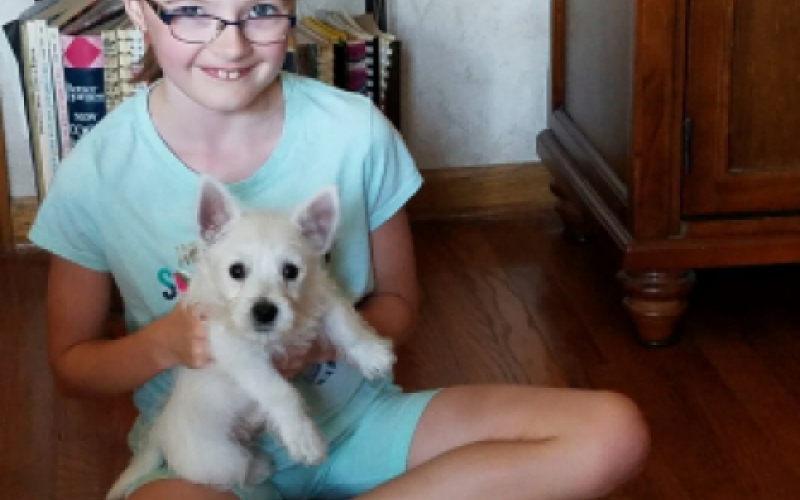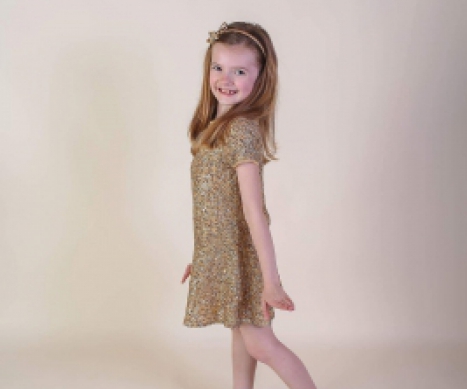
“I want chocolate milk, IMMEDIATELY,” those were 4-year-old Sophia’s first words following a seven-hour surgery to remove a tumor on her kidney.
It is no surprise that little Sophia, who is now 8 years old and a survivor of Wilms’ tumor, the most common type of kidney cancer in children, describes herself as “one tough cookie.”
Wilms’ tumor typically presents itself as a painless swelling of the belly. In Sophia’s case, her pediatrician noticed it at her routine 4-year-old checkup. For other children, a parent might notice the swelling or even, rarely, blood in their child’s urine.
Treatment includes surgery to remove the tumor or the entire affected kidney, chemotherapy and radiation. The disease has a high cure rate—as high as 90% for most children—but high doses of radiation can cause long-term side effects. Children who have been treated for Wilms’ tumor have regular scans to check for both relapse and side effects.
Sophia had surgery, followed by 18 months of chemotherapy and radiation at  Wesley Medical Center in Wichita, Kansas. Treatment was hard—but her family worked just as hard to keep Sophia’s spirits high with special outings and lots of love. Sophia kept her spunky, tough cookie attitude throughout treatment.
Wesley Medical Center in Wichita, Kansas. Treatment was hard—but her family worked just as hard to keep Sophia’s spirits high with special outings and lots of love. Sophia kept her spunky, tough cookie attitude throughout treatment.
Sophia has been three years cancer-free and, together with her family, is a Hero Ambassador for Alex’s Lemonade Stand Foundation. Her family knows how important childhood cancer research is for children like their daughter.
“I’m so grateful that Sophia is well and that there’s a treatment plan for her, but she suffered,” said Tiffany Stepien, Sophia’s mom.
Treatment for Wilms’ tumor has been largely unchanged for some time, because of its high cure rate. However, high doses of radiation to a child can come with several serious side effects, including scoliosis, restrictive lung disease and sarcoma, later in life. Now, research is studying how targeted, individualized treatments can help limit the use of high dose chemotherapy and radiation, so children can be cured without being harmed. Research is also looking to identify the highest risk patients—those who may be prone to relapse—so that this group can receive higher doses of frontline treatment and beat Wilms’ tumor without relapsing.
Sophia is already planning to help search for safer, more effective treatments for kids like her.
“Sophia always said she’s going to invent a chemo that only gets the cancer cells and not hair or stomach cells,” said Tiffany. “And then, “I am going to invent glasses that can just look at my belly and know the cancer is gone and I won’t need a CT scan.”
Read more about Sophia here.
ALSF funds several research projects studying Wilms’ tumor, as well as Beckwith-Wiedemann Syndrome, a genetic predisposition disorder that can lead to the development of Wilms’ tumor. Read more about that research here.

